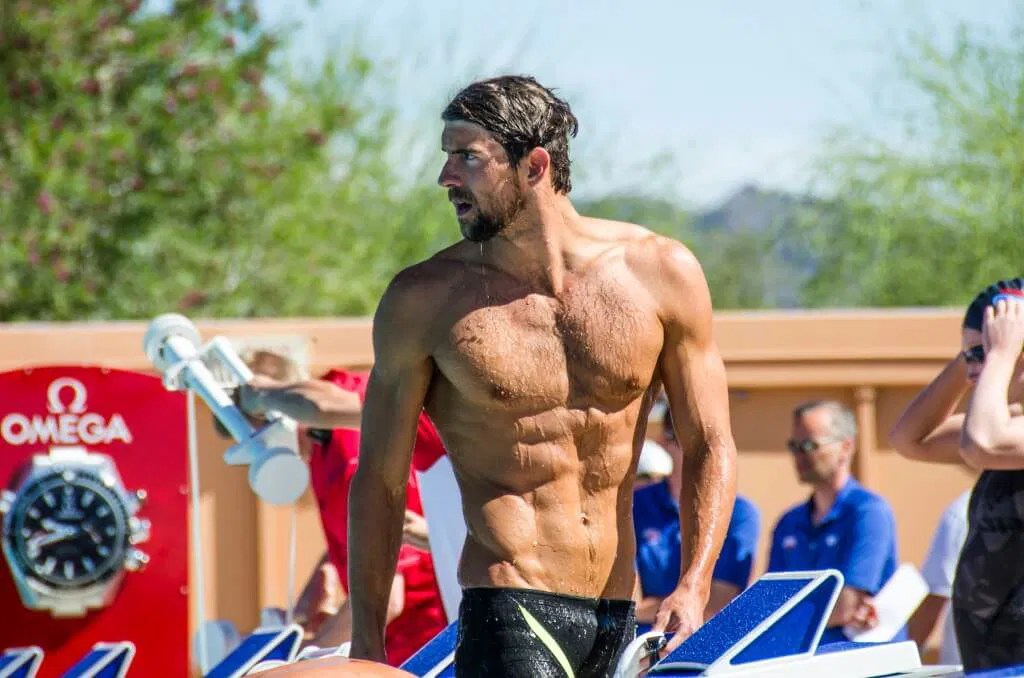Michael Phelps height is often a topic of fascination among fans and sports enthusiasts alike. The towering figure of the most decorated Olympian in history has not only contributed to his remarkable swimming prowess but also sparked discussions about how physical attributes can influence athletic performance. In this article, we will delve into Phelps’ height, its significance in the world of swimming, and how it has played a role in his incredible career.
As we explore the topic of Michael Phelps height, we will also consider the broader implications of an athlete's physical characteristics on their performance. Beyond just height, factors such as wingspan, body composition, and flexibility will be examined. This comprehensive overview will provide insights into why Phelps stands out not just as a swimmer but as a physical specimen in the realm of sports.
Furthermore, we will provide a detailed biography of Michael Phelps, including his early life, career highlights, and personal achievements. By understanding the man behind the medals, readers will gain a deeper appreciation for his contributions to the sport and what his height means in the context of his success.
Table of Contents
- Biography of Michael Phelps
- The Significance of Height in Swimming
- Michael Phelps Height: A Closer Look
- Wingspan: The Secret Weapon
- Body Composition and Swimming Performance
- Flexibility: A Critical Factor
- Impact of Height on Phelps' Career
- Conclusion
Biography of Michael Phelps
Michael Fred Phelps II was born on June 30, 1985, in Baltimore, Maryland. He began swimming at the age of seven and quickly showed exceptional talent. Phelps made his Olympic debut at just 15 years old during the 2000 Sydney Olympics, where he became the youngest male swimmer to compete in the Olympics since 1932.
Throughout his career, Phelps has broken numerous world records and won a staggering 28 Olympic medals, including 23 gold medals. His achievements have made him a household name, and his work ethic and dedication to the sport have inspired countless athletes worldwide.
| Personal Information | Details |
|---|---|
| Full Name | Michael Fred Phelps II |
| Date of Birth | June 30, 1985 |
| Height | 6 ft 4 in (193 cm) |
| Weight | 194 lb (88 kg) |
| Nationality | American |
The Significance of Height in Swimming
Height can play a crucial role in swimming performance. Taller swimmers often have longer limbs, which can enhance their stroke length and overall efficiency in the water. This section will explore how height contributes to competitive swimming.
Advantages of Height in Swimming
- Longer stroke length allows for fewer strokes per lap.
- Increased reach can improve starts and turns.
- Greater leverage can enhance power during strokes.
Height vs. Technique
While height offers advantages, it is essential to recognize that technique, training, and mental fortitude are equally important. Many successful swimmers come in various sizes, demonstrating that a balance of physical attributes and skill is vital.
Michael Phelps Height: A Closer Look
Standing at 6 feet 4 inches (193 cm), Michael Phelps has a height that significantly benefits his swimming ability. His long arms give him an impressive wingspan, which is critical for effective strokes.
Phelps' Wingspan
Phelps' wingspan is reported to be around 6 feet 7 inches (201 cm), which is unusual for someone of his height. This added reach allows him to cover more distance with each stroke, giving him a competitive edge.
Wingspan: The Secret Weapon
The concept of wingspan in swimming cannot be understated. Athletes with longer wingspans can achieve a more streamlined position in the water, leading to enhanced speed and efficiency.
Wingspan vs. Height
Phelps' wingspan being longer than his height is a common trait among elite swimmers. This unique physical characteristic allows for better propulsion and a smoother swimming technique, ultimately contributing to his success.
Body Composition and Swimming Performance
Beyond height, body composition plays a vital role in a swimmer's performance. Phelps has a low body fat percentage, which reduces drag in the water and enhances buoyancy.
Optimal Body Composition for Swimmers
- Low body fat for reduced drag.
- Muscle mass for increased power and speed.
- Strong core for better stability and performance.
Flexibility: A Critical Factor
Flexibility is another essential aspect of swimming performance. Phelps' training regimen includes exercises to improve his flexibility, allowing him to achieve a greater range of motion in his strokes.
Benefits of Flexibility in Swimming
- Improved stroke efficiency.
- Better starts and turns.
- Injury prevention through enhanced muscle elasticity.
Impact of Height on Phelps' Career
Michael Phelps' height, wingspan, and overall body composition have undeniably contributed to his status as the most decorated Olympian. His physical attributes have complemented his hard work and dedication, leading to unmatched success in the pool.
While height may offer advantages, it is essential to remember that Phelps' achievements are the result of years of rigorous training, mental toughness, and a passion for the sport. His story serves as an inspiration for athletes of all sizes and shapes, proving that determination and skill can lead to greatness.
Conclusion
In summary, Michael Phelps height and physical attributes have played a significant role in his swimming success. His unique combination of height, wingspan, and body composition has allowed him to excel in the sport and achieve unprecedented accolades. Whether you are a swimmer, a sports enthusiast, or simply a fan of Phelps, understanding the impact of these physical characteristics can enhance your appreciation for his remarkable journey and contributions to swimming.
We invite you to share your thoughts in the comments below! What do you think about the role of height in sports? Don’t forget to share this article with fellow sports fans and explore more content on our site!
Thank you for reading, and we look forward to seeing you again soon!


